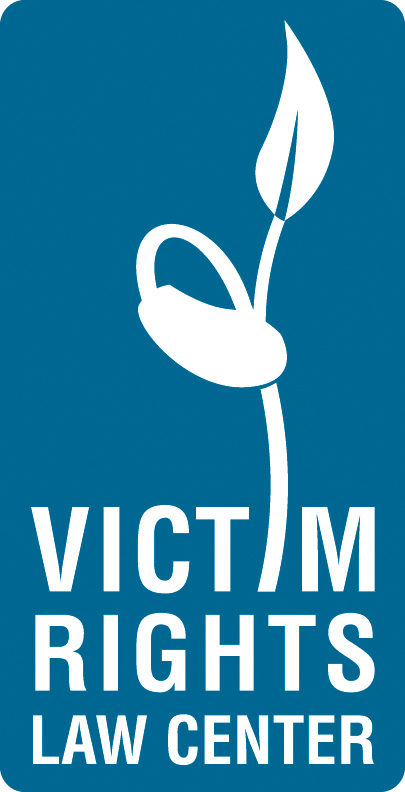Supporting Sex Trafficking Survivors: Long-Term Legal Support
Supporting Sex Trafficking Survivors: Long-Term Legal Support
By Alexia Tomlinson
Staff Attorney, Training and Technical Assistance, Victim Rights Law Center
This is the third blog in a series that recognizes Human Trafficking Awareness and Prevention Month. Read the first post here and second post here.
Survivors of sex trafficking often face legal issues for years, or even decades, after the fact. Many of these legal needs are similar to those experienced by survivors of any gender-based violence: housing, education, employment, etc. Survivors of sex trafficking may also need support as a victim-witness in one – or many – criminal prosecutions; may pursue civil actions against their abusers or those involved in their exploitation; or face unique and complicated privacy issues. Survivors should have access to holistic, trauma-informed services to support them as they walk through the legal remedies they wish to pursue.
1. Trauma-Informed Criminal Prosecution
Increasingly, criminal charges are being brought against those individuals and business entities engaged in human trafficking. The related cases are complicated and resource intensive for law enforcement. They may take years to bring to fruition, with evidence ranging from police testimony to business records and eyewitness accounts. But, overwhelmingly, the primary source of evidence are the survivors themselves—who can speak to the abuse and exploitation they experienced. For some survivors, the prosecution of their abusers can feel empowering and serve as an opportunity to be heard after years without voice or agency. They develop a relationship with prosecutors who support and work with them to ensure the criminal process is a part of their healing. For others, prosecution is a time of dread, re-traumatization, and coercion. Some prosecutors use every tool available to them to obtain victim-witness testimony, including threatening trafficking survivors with criminal charges for prostitution or conspiracy to commit trafficking. This only deepens mistrust of the judicial system. Trauma-informed prosecution of trafficking cases is possible, and should be the goal in every instance.
2. Civil Legal Remedies
There is a growing movement for survivors of sex trafficking to seek civil compensation for their abuse and exploitation. And while those society thinks of as “traffickers” may be judgement-proof, the businesses and entities that benefit from exploitation have deep pockets. Currently, the hotel industry is the primary target of these types of civil lawsuits, which give survivors an opportunity to be heard and to be compensated for their pain. This type of civil lawsuit cannot be handled by non-profit organizations like VRLC, who may assist a survivor through many of their other legal issues in a trauma-informed and survivor-centered way. They are often handled by large law firms who are not always accustomed to survivor-led and trauma-informed lawyering. Slowly, we see small changes, but there is a long way to go.
3. Privacy
Survivors of sex trafficking face many of the same privacy concerns as other survivors of gender-based violence. There is, however, one particular area that deserves specific attention given its prevalence and the difficulty survivors have in addressing it: the creation and sale of sexual abuse material online. Traffickers often photograph or film instances of exploitation, either as a source of blackmail against survivors, as advertisements, or as additional income. Once these digital recordings exist on the internet, they are near impossible to completely remove or even for survivors to locate. While some websites have the ability to report and remove content, often reports go ignored for months or years, and many fail to provide this option at all. This is not a problem unique to trafficking survivors, but one with which they require a unique level of ongoing support. The SafetyNet Project has created a resource outlining steps to remove personal content from the internet, which serves as a great starting point for survivors.
Alexia Tomlinson is a Staff Attorney with the Training and Technical Assistance team. Her prior representation of survivors of sex trafficking, in the United States and abroad, drives her to work to ensure every survivor of gender-based violence is supported.
